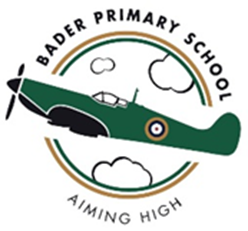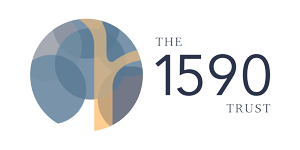Maths
Intent
‘Pure Mathematics is, in a way, the poetry of logical ideas’
Albert Einstein
At Bader Primary School, we aim to provide every child with a range of mathematical methods and skills to solve problems which they need in their daily life beyond school. We want children to become confident, inquisitive mathematicians through being determined learners. We aspire to do this through a clearly sequenced, ambitious curriculum based on the concrete, pictorial and abstract process, which gives all children the opportunities to aim high and unlock mathematical fluency, and develop a secure and deep understanding of mathematical concepts through manageable steps.
Implementation
Implementation – EYFS
In the EYFS, maths is embedded within the areas of learning and is taught discretely in Reception. Teachers plan purposeful and engaging tasks to give children the opportunity to embed fluency and to develop their reasoning skills through variation and noticing maths in real life. Pupils initially explore numbers to 20 through the development of concrete and pictorial representations for numbers as a solid foundation for further progress.
Implementation – Key Stage One and Two
The teaching of maths follows the White Rose Maths Mastery approach of concrete, pictorial and abstract representations. This ensures that children are following a mastery approach by thinking, discussing, solving and proving their methods/ideas.
Maths in KS1 is still very practical and children use a variety of concrete and pictorial resources to make maths as interactive as possible. However, in Year 2 children are beginning to work more independently and will be given more opportunities to choose an appropriate concrete resource or to apply a pictorial method. Children apply and develop skills that they have learned in EYFS such as their times tables and division facts. Fluency is further embedded through the use of Fluent in 5 and Times Table Rockstars. Creating a secure understanding of times tables in KS1 develops confident and secure learners for KS2. Children are encouraged to work within groups and independently to share their understanding and to prove what they know using an array of resources. The vocabulary in KS1 begins to increase and children apply this within their reasoning skills. In KS1 children also use the Mastering Number resource which embeds their understanding of number in short, engaging sessions.
Maths in KS2 is similar to KS1, in that they also complete Fluent in 5 and Times Tables Rockstars to embed fluency – each new year offers new opportunities for progress in fluency. Children are also encouraged to use concrete and pictorial methods and taught such methods as appropriate for their learning journey. This enables children to think critically, and to think deeper, allowing children to investigate and extend what they already know. Children are exposed to a range of engaging open-ended tasks that may require more than one answer or, in some cases, no right or wrong answer.
In all years, from reception to Year 6, children are encouraged to enjoy maths and to make marvellous mistakes in which they can learn from. Maths at Bader aims to create inquisitive and resilient learners who can apply what they have learned to the world around them and celebrate their own successes.
Impact
Bader Primary uses triangulated monitoring throughout the year to gauge the impact of the Maths curriculum across school. The impact of the curriculum is seen in:
- Progress has consistently risen over the last five years in maths in Key Stage 1 and Key Stage 2 SATs
- Standards and abilities within fluency skills have risen and are embedded throughout school
- Fluent in 5 is completed in every class, every day giving regular opportunity to embed and apply
- Reasoning skills are improving and children can vocalise their understanding and apply to all topics
- Every class completes daily times tables sessions to support fluency and reasoning skills
- Children’s voice shows that they are able to recall and apply previous learning and make links
- Stimulating environments within the classroom and practical resources to engage and encourage independent learners
- Learners that develop and build upon the previous skills from each year
- An accessible curriculum which allows learners of all abilities to be included and challenged appropriately
- Quality resources and curriculum create familiarity with expectations and methods
- Concrete, pictorial and abstract methods engage all learners and develop understanding of a mastery curriculum

